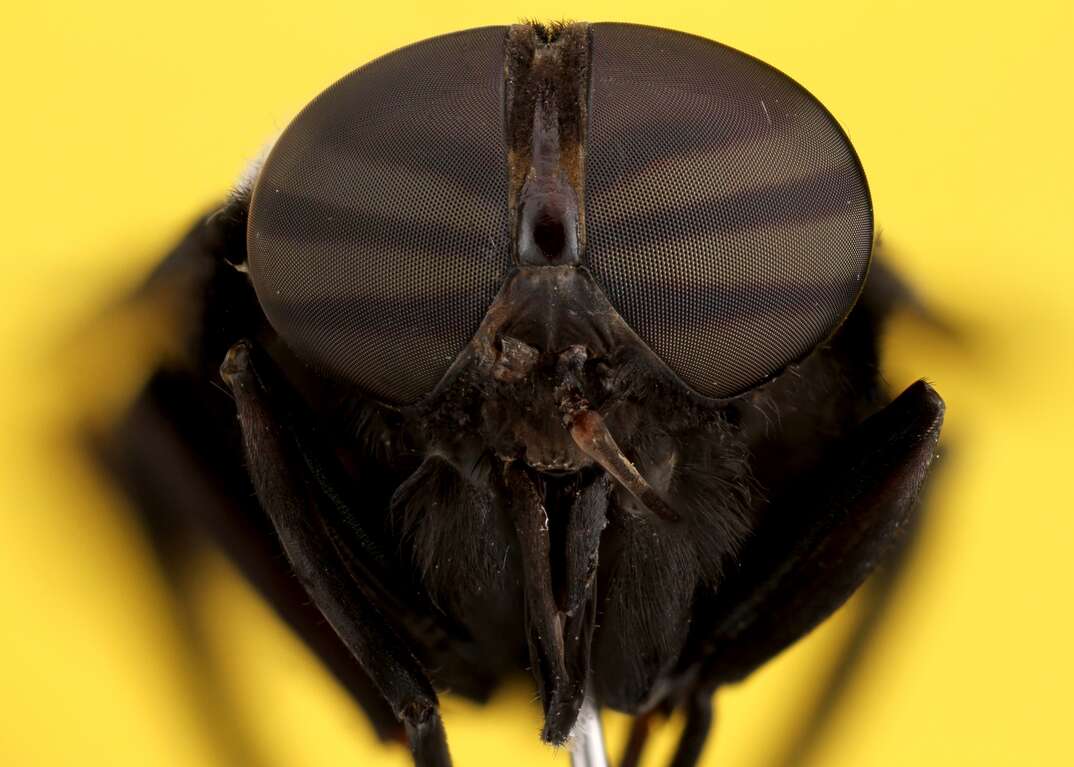- AppliancesElectriciansHVACLandscapingLocksmithPest ControlPlumbingRenovationRoofingT V RepairAll Home Improvement
- Car AccidentClass ActionCorporate LawCriminal DefenseDivorce LawEmployment LawFamily LawFinancial LawLegal AidMedical Injury LawyersMedical MalpracticeReal Estate LawWater Fire RestorationAll Legal
- InvestmentRetirementAll Finance
- Animal InsuranceAutoGeneral InsuranceHealth PolicyHome RentersAll Insurance
- DentalHealth SpecialistsAll Medical
- Animal CareVeterinaryAll Pets
- Auto GlassTowingAll Automotive
How Do You Get Rid of Horseflies? Here’s the Answer, Straight From the Horse’s Mouth

Getting flies to buzz off can feel like an impossible task, especially in the summer when you're enjoying the warm weather outdoors.
Read More Home Improvement Articles
Horseflies can be particularly obnoxious and painful due to their tendency to chomp down on bare arms and legs. Find out how to get rid of horseflies to make your warm weather adventures more enjoyable.
A horsefly is a specific type of fly that looks similar to — but a little bigger than — regular houseflies that swarm around your picnic plates. They get their name from their tendencies to pester horses. They're usually black or gray and grow to 1/2 to 1-1/4 inches long. They prefer wet climates, such as coastal areas, as they need a damp spot to lay eggs, but you can find them across the country. You'll often notice them around pools, ponds, lakes and other water sources, so you might experience a stronger presence of horseflies if your property has one of these features.
Do Horseflies Bite?
Female horseflies bite, but the male horseflies don't. Females need blood to produce eggs — a specific protein in animal blood helps horsefly eggs develop. They have a preference for horses and other large, dark animals, but they'll also bite other animals and humans, especially in the summer when it's mating time. Horseflies sense movement, color and carbon dioxide output to track down potential sources of blood to bite.
Horsefly bites are often quite painful. Their mouths are strong and sharp. They use a scissor-like action to cut your skin and get to your blood. If you're the unlucky victim of a horsefly bite, use soap and water to clean the bite and hold something cold on the area for a few minutes to cut down on swelling. You can apply over-the-counter creams or medications to help with the pain and itching.
Horseflies don't typically transmit diseases to humans like ticks and mosquitoes can. The bigger issue is the discomfort that comes with a horsefly bite. It often causes pain, redness and some minor swelling around the bite. Some people have additional symptoms, including hives, wheezing, dizziness and more severe swelling. If you scratch the area or don't clean it well, the bite could get infected. If you have a more severe reaction or think the bite is infected, contact your doctor or seek medical attention.
More Related Articles:
- What to Look For When Hiring an Exterminator
- Are Pest Control Products Dangerous For Kids and Pets?
- What Are Ultrasonic Pest Repellers?
- 10 Ways to Prevent Termites
- How to Spray for Mosquitoes
How Do You Get Rid of Them?
If you're dealing with a swarm of these pests, your biggest concern is how to get rid of horseflies. You can buy a variety of products that are designed to kill or repel horseflies and other common insects. Look for a spray insecticide that mentions horseflies on the label to spray around your property. Fly traps will also work and can be placed in various spots around your property to attract and trap the pests.
Most insect repellents that you can spray on your skin or clothes don't work well for horseflies. You can protect yourself by covering as much skin as possible and wearing lighter clothes because they're drawn to darker colors. If you can't figure out how to get rid of horseflies yourself, you might need to call an exterminator to help.
How Do You Keep Them From Coming Back?
Making your yard less appealing to horseflies can stop them from coming back. Because they need wet areas to lay their eggs, look for spots in your yard that stay damp or offer a water source, such as birdbaths or low areas where water collects. Emptying small water features and correcting issues in your landscaping that cause water to collect can cut down on the breeding areas for horseflies.
It can also help to remove brush and debris on your property, which can serve as a breeding spot. Keep your lawn mowed and remove weedy patches, as the taller growth helps trap moisture and create an ideal humid environment. Keep trash bins in your garage or a shed if possible, and make sure outdoor trash cans have tight-fitting lids because garbage can attract flies. It's also a good idea to clean up pet waste regularly because horseflies are attracted to it.
How Much Does It Cost to Hire an Exterminator to Get Rid of Them?
According to Fixr, fly extermination typically ranges from $175 to $300, with an average of $250. The cost can vary based on your location, the size of your property and the extent of the horsefly infestation. Call several local exterminators to get quotes for getting rid of horseflies if you have a major issue with them.
Elocal Editorial Content is for educational and entertainment purposes only. Editorial Content should not be used as a substitute for advice from a licensed professional in your state reviewing your issue. Systems, equipment, issues and circumstances vary. Follow the manufacturer's safety precautions. The opinions, beliefs and viewpoints expressed by the eLocal Editorial Team and other third-party content providers do not necessarily reflect the opinions, beliefs and viewpoints of eLocal or its affiliate companies. Use of the Blog is subject to the
Website Terms and Conditions.The eLocal Editorial Team operates independently of eLocal USA's marketing and sales decisions.



